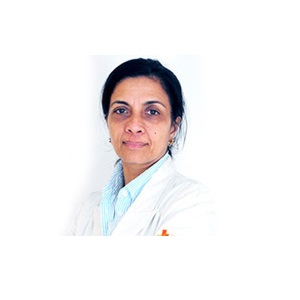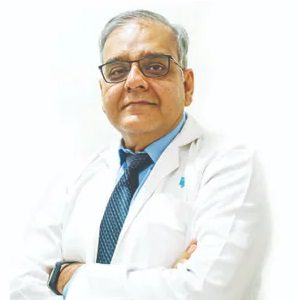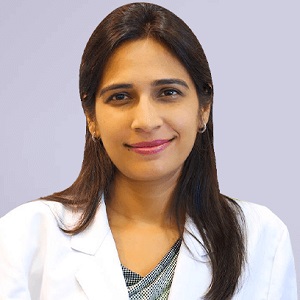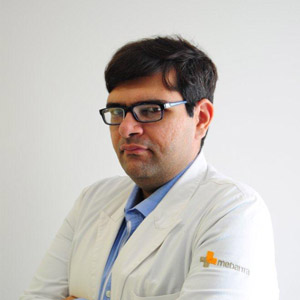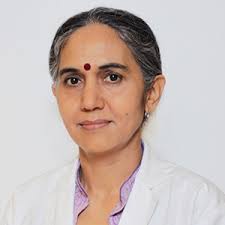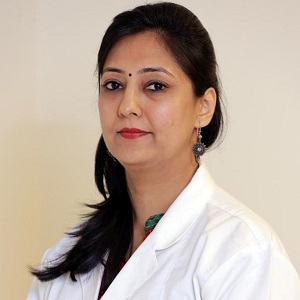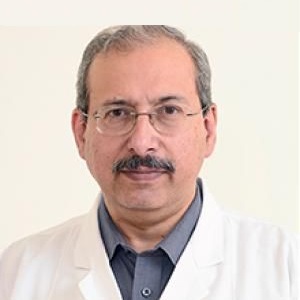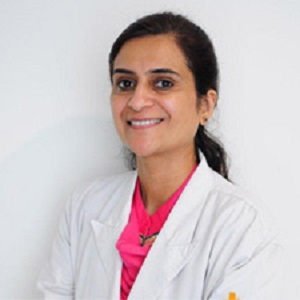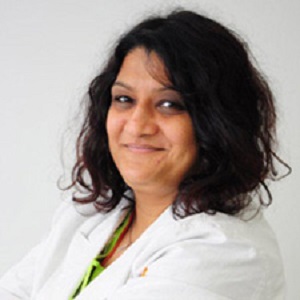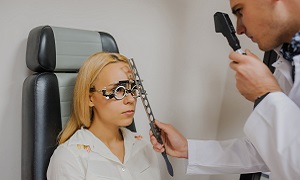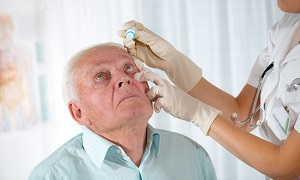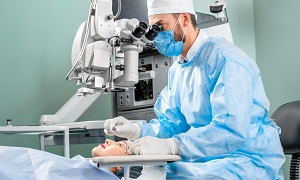Best Doctors in India for Cataracts treatment
- Ophthalmologist, Gurugram, India
- Over 35 years’ experience
- Medanta-The Medicity, Gurgaon
Profile Highlights:
- Dr. Careen Pakrasi is one of the best ophthalmologists in Gurugram. She practiced as a senior resident in Safdarjung Hospital from 1994 to 1996. Dr. Carreen Pakrasi is also a post-graduate Diploma holder in hospital management from IHFW.
- Dr. Careen Pakrasi has over three decades of rich professional experience in her field. Her area of interest lies in the treatment of Cataracts, Refractive Surgery, Glaucoma, and UVEA. She used to be the director of Pakrasi eye associates from 1996 to 2013.
- Top Ophthalmologist | Apollo Hospital, New Delhi, India
- 32+ Years Experience
- Indraprastha Apollo Hospital, New Delhi
Profile Highlights:
- Dr. Aniel Malhotra is a renowned eye surgeon in Delhi and has experience of nearly 32 years in the field.
- Since 1996 he has been working as a Senior Consultant at Indraprastha Apollo Hospital, New Delhi.
- Dr. Malhotra specializes in squint surgery, LASIK Surgery, and cataract surgery. Besides these, some significant services offered by the doctor are Cornea transplant, retinal detachment surgery, Diabetic Retinopathy, DALK, DSEK, and Cosmetic Eye Surgery.
- He got a fellowship under Padma Shree Dr. S.S. Badrinath from renowned eye hospital, Shankar Netralaya, Chennai.
- Ophthalmologist & Eye Surgeon, Gurugram, India
- Over 20 years’ experience
- Marengo Asia Hospital, Faridabad
Profile Highlights:
- Dr. Shibal Bhartiya is a distinguished eye surgeon and the Director of the Department of Ophthalmology at Marengo Asia Hospitals, Gurgaon.
- With over 20 years of experience in ophthalmology, Dr. Bhartiya is renowned for her compassionate approach to patient care, guided by unwavering ethical standards.
- Dr. Bhartiya’s academic journey includes training at prestigious institutions such as Maulana Azad Medical College and Dr. R P Centre, AIIMS, New Delhi, as well as the Department of Clinical Neurosciences at Hôpitaux Universitaires de Genève, Switzerland.
- Ophthalmologist, Gurugram, India
- Over 12 years’ experience
- Fortis Memorial Research Institute
Profile Highlights:
- Dr. Indrish Bhatia is a well-known ophthalmologist with a rich experience of 12 years across a host of leading medical institutions under his belt and currently works at FMRI as a Senior Consultant.
- Throughout his career, he has performed over 1000 vitreoretinal surgeries. He has also given over 6000 intravitreal injections. He also has a special interest in diabetic retinopathy.
- Top Ophthalmologist | Max Hospital, Saket, New Delhi, India
- 20+ Years Experience
- Max Super Specialty Hospital, Saket, New Delhi
Profile Highlights:
- Dr. Amanjot Singh has been practicing medicine for 20 years. Her specialization lies in cataract surgery by phacoemulsification and LASIK. She has been conducting training in Phacoemulsification at SGHS hospital in Sohana and at Centre for Sight, New Delhi prior to joining Max Healthcare.
- She has multiple specializations including refractive surgery, corneal surgery, eye muscle surgery, oculoplastic surgery, etc. Dr. Amanjot is a member of the Delhi Ophthalmic Society and the Bombay Ophthalmic Society.
- Top Ophthalmologist | Max Hospital, Saket, New Delhi, India
- 20+ Years Experience
- Max Super Specialty Hospital, Saket, New Delhi
Profile Highlights:
- Dr. Deepali Garg Mathur is a Consultant Ophthalmologist who has completed her DNB from the National Board of Examination & MNAMS from the National Board of Examination.
- Dr. Deepali Garg has expertise in Squint, Paediatric Ophthalmology, cataracts, Lasik, Lasers, Eye Surgery, Corneal, Phacoemulsification, Eyesight problems, Glaucoma, Dry Eyes, Eye Pain, etc.
- Top Ophthalmologist | Apollo Hospital, New Delhi, India
- 36+ Years Experience
- Indraprastha Apollo Hospital, New Delhi
Profile Highlights:
- With over 36 years of experience, Dr. Ranjana Mithal is currently practicing at Indraprastha Hospitals in Delhi. Her expertise lies in providing services for diabetic eye ailments, laser eye surgeries, glaucoma treatment as well as phaco-surgery.
- She has also gained additional specialization in LASIK & Neuro-ophthalmology.
- Dr. Ranjana Mithal is a member of several associations as well, such as the Glaucoma Society of India, and the Cataract & Refractive Society of India.
- Top Ophthalmologist | Max Hospital, Saket, New Delhi, India
- 29+ Years Experience
- Max Super Specialty Hospital, Saket, New Delhi
Profile Highlights:
- With over 29 years of experience, Dr. Tarun Kapur is one of the most renowned ophthalmologists/eye surgeons based in Delhi.
- Some of the services provided by Dr. Kapur include Avastin Injections, Glaucoma Evaluation / Treatment, Retina Examination, and keratoplasty.
- Dr. Tarun Kapur had also been awarded the National Talent Search Scholarship as well as Junior Science Talent Scholarship.
- Ophthalmologist, Gurugram, India
- Over 15 years’ experience
- Medanta-The Medicity, Gurgaon
Profile Highlights:
- Dr. Nidhi Verma is known as one of the best ophthalmologists in Gurugram.
- Her last overseas assignment was as a Consultant at Victoria Hospital Seychelles. Her main fields of interest are Medical Retina, Glaucoma, and Uvea.
- She has also been involved in teaching undergraduate as well as postgraduate students. At Medanta Dr. Nidhi Verma is mainly involved in Preventive Health check-ups and comprehensive Ophthalmology.
- Ophthalmologist, Gurugram, India
- Over 21 years’ experience
- Medanta-The Medicity, Gurgaon
Profile Highlights:
- Dr. Vishakha Kapoor is a renowned ophthalmologist at Medanta Hospital, Gurugram, having over 21 years of experience.
- She provides medical Treatment for Red Eyes, Treatment of Dark circles, Treatment of Eye Pain, Treatment of the Black eye, Eye Itching, Treatment of Conjunctivitis, Weak Eyes, Eye Infection, Tearing Eyes, and Eye Burning.
- Currently, she is also a member of the Delhi Ophthalmological Society.
Best Hospitals in India for Cataracts treatment
- City: New Delhi, India
Hospital Highlights:
- Equipped with 650 beds, BLK-Max Super Speciality Hospital is the largest stand-alone private sector hospital in Delhi.
- With over 1500 healthcare providers and 150 globally renowned super specialists, the hospital is one of Asia’s largest BMT Centres. The hospital is known for having some of the best cancer doctors in the country.
- The hospital is NABH and NABL accredited and was inaugurated by the first Prime Minister of India. Pt. Jawahar Lal Nehru.
- City: Hyderabad, India
Hospital Highlights:
- Located in the vibrant city of Hyderabad, Apollo Health City is a world-renowned medical facility that provides outstanding care and treatment to patients coming from different parts of the world.
- Founded in 1988, this 550-bed multispecialty hospital with 50 specialties and 12 Centres of Excellence continues to deliver outstanding outcomes for patients with the simplest to the most complicated medical conditions.
- Backed by the latest medical equipment and a dedicated team of professionals, the hospital provides comprehensive treatment across various specialties including, cardiology, critical care, neurosciences, cancer, orthopedics, gynecology, ENT, transplants, gastroenterology, etc.
- Apollo Health City is a cutting-edge healthcare facility that combines various facilities under one roof. These may include state-of-the-art physical medicine, rehabilitation, and wellness services with education, research, telemedicine, innovative medical devices, disease management programmes, and medical talents.
- The hospital is known for offering top-notch cancer treatment accompanied by cutting-edge facilities and technology.
- The hospital also offers a broad spectrum of cosmetic procedures that improve not just appearance but also comfort.
- In 2011, Apollo Health City was the recipient of the Asian Hospital Management Award (AHMA).
- In 2013, the Government of India recognized Apollo Health City as the top medical tourism destination in the country.
- City: Mumbai, India
Hospital Highlights:
- Kokilaben Dhirubhai Ambani Hospital, Named after the wife of Indian industrialist Dhirubhai Ambani, the founder of Reliance Industries, this is one of the top hospitals in Mumbai. This 750-bed multi-specialty hospital became operational in 2009. Known as one of India’s most advanced tertiary care facilities, the hospital is designed to raise India’s global standing as a healthcare hub, with an emphasis on excellence in clinical services.
- Kokilaben Dhirubhai Ambani Hospital uses Protocol and Care Pathway based treatment models to ensure the best outcomes for patients.
- The hospital represents a confluence of top-notch talent, cutting-edge technology, state-of-the-art infrastructure, and, most importantly commitment.
- The hospital also holds the accreditation of the NABH, NABL, CAP, and JCI.
- The hospital has been recognized as the No. 1 Multispecialty Hospital in Mumbai and the West Zone for the fifth year in a row in 2020 by The Week.
- City: Chennai, India
Hospital Highlights:
- Apollo Cancer Centre in Teynampet, Chennai is one of the best super speciality hospitals in India. It is the country’s first ISO-certified healthcare facility.
- Additionally, it is the first hospital in Chennai and the first oncology hospital in India to receive NABH accreditation.
- The hospital provides advanced tertiary care in oncology, orthopedics, neurology and neurosurgery, head and neck surgery, and reconstructive and plastic surgery.
- Additionally, it offers specialized healthcare of international standards with results comparable to those of the best hospitals in the world.
- It is outfitted with 300 beds, the newest and greatest technology, a large pool of highly qualified specialists, and a committed team of medical and paramedical professionals.
- It is one of the first few medical facilities in India to offer comprehensive cancer care. A team of skilled medical, surgical, and radiation oncologists makes up the Tumour Board, which is a component of the complete treatment planning system. After reviewing reported cases, the Board determines in concert with diagnostic specialists what course of action is best for each individual patient. The panel is further supported by dieticians, medical counselors, speech therapists, and other pertinent specialists.
- The hospital launched the first ExcelsiusGPS® Spine Robot in South India and has completed over 50 surgeries till date.
- It is also one of the few cancer hospitals in India to offer Cyber Knife therapy. Till now it has completed 1320 Cyber Knife therapies.
- The institution is also one of the few in India with the capacity to do transplants and find a prospective unrelated donor. The hospital has performed over 1000 BMTs till now.
- Furthermore, it has an exceptional milestone of performing exultant Micro vascular free tissue transfer and Aesthetic surgeries on more than 1000 patients with success.
- City: Chennai, India
Hospital Highlights:
- Apollo Hospitals, Chennai, is one of the best hospitals for heart care in India. Over the years, Apollo has expanded all over India, as a healthcare chain.
- India’s first ‘Only Pancreas’ transplant was performed in Apollo Hospital. The hospital is known for successfully performing Asia’s first en-bloc combined heart and liver transplant, and over the years, it has attained a remarkable achievement in the global healthcare space. Around 3-4 organ transplants are performed in the hospital per day.
- Equipped with over 500 beds, this hospital in Chennai was established in 1983 and since then has been among the most preferred hospital for patients from all over the world.
- The hospital holds accreditation of the NABH and JCI and is the first hospital in India to be ISO 9001 and ISO 14001 certified. It is also the first South Indian Hospital to receive subsequent reaccreditation from the JCI USA 4 times.
- City: Chennai, India
Hospital Highlights:
- Established in 1999, Gleneagles Global Hospital, Chennai, is one of the top healthcare facilities in Southern India. It is part of the Gleneagles Hospital Chain, which is the fourth largest healthcare chain in the country. The hospital specializes in multi-organ transplants of kidneys, liver, lungs, heart, etc.
- The hospital has an excellent infrastructure and state-of-the-art lab and equipment set-up. The hospital boasts cutting-edge technologies, a highly skilled team of doctors and surgeons, and trained support staff. Located in Perumbakam, Chennai, it is one of India’s premier health care destinations. The hospital has performed some of the most complex surgical and clinical procedures in India including multi-organ transplantations.
- The hospital’s lung transplantation program is one of the best in the country. The hospital is known for having performed India’s first single lung transplant and first minimal invasive lung transplant. It is also the only Indian hospital to be associated with King’s College Hospital, London, United Kingdom for liver transplantations.
- City: Hyderabad, India
Hospital Highlights:
- KIMS Hospital (a brand name of Krishna Institute of Medical Sciences) is one of the largest and best multi-speciality hospitals in Hyderabad. The hospital provides various treatments to an enormous number of patients.
- The hospital has a capacity of more than 3000 beds. KIMS Hospitals offers different healthcare services in more than 25 specialities and super specialities.
- The hospital is equipped with modern medical equipment and technology. It has robotic equipment to provide minimal invasive techniques for patients.
- The hospital is aimed at providing world-class healthcare facilities and services at an affordable cost for patients.
- The various specialities and departments of the hospital include neurosciences, gastroenterology & hepatology, robotic science, reproductive sciences, dental science, oncological sciences, organ transplantation, heart and lung transplantation and mother and child care.
- City: Kolkata, India
Hospital Highlights:
- Established in 2003, Apollo Gleneagles Hospitals is a 750-bed multispecialty tertiary care hospital situated in Kolkata.
- With 33 Centres of Excellence and more than 50 specialties, Apollo Gleneagles Hospitals, Kolkata is capable of handling all sorts of patients.
- This tertiary care hospital, which is a 100% subsidiary of Apollo Hospitals Enterprise Ltd., India, is regarded as one of Kolkata’s top hospitals.
- The facility is a complete blend of cutting-edge technology, state-of-the-art infrastructure, and genuine hospitality.
- Focusing on numerous specialties, the hospital provides all-inclusive medical treatments supported by cutting-edge technology and a staff of highly qualified medical specialists.
- Patients across the globe come to Apollo Gleneagles Hospitals Kolkata for their treatment. Moreover, international patients receive full attention and assistance for their treatment and are provided with a hassle free experience.
- Apollo Gleneagles Hospitals, Kolkata is the only hospital in Eastern India to hold the Joint Commission International (JCI) certificate.
- It is also the only hospital in Kolkata to hold the NABL accreditation in six different categories, which includes Clinical Biochemistry, Clinical Pathology, Hematology & Immunohematology, Microbiology & Serology, and Histopathology & Cytopathology.
- Furthermore, Apollo Gleneagles Hospitals, Kolkata is known for performing the first ever Reverse Shoulder Prosthesis Replacement in East India.
- City: Bengaluru, India
Hospital Highlights:
- Established in 1991, Manipal Hospital, Old Airport Road, Bangalore is the flagship facility of the Manipal Hospitals Group, which is one of the largest networks of Multispecialty Private Hospitals in India.
- The facility is well-known for its state-of-the-art technology, performance-driven, patient-centric, and evidence-based approach.
- The facilities offered at Manipal Hospital meet the highest international standards, allowing the hospital to attract a large number of national and international patients.
- Their expertise encompasses the diagnosis and treatment of a wide range of diseases in several specializations that address both simple as well as complex medical procedures.
- There are total 600 beds accessible in the hospital for the in-patients so they may heal while being closely watched after by the medical team. In addition, it has 144 critical care units, including NICUs, ICCUs, and ICUs. Apart from that, the hospital also offers 20 contemporary, modular state-of-the-art operating rooms with all the amenities needed.
- The hospital has several departments that are overseen by highly skilled, certified, and experienced medical experts.
- One of the best departments in the hospital is that of the Cancer department which is known for its advanced cancer diagnosis and treatment facilities such as Intracavitary Chemotherapy, Biological Therapy, HIPEC, PIPEC, Nuclear Medicine, Radiation Therapy, etc.
- It is one of the few hospitals in Bangalore that provides full range of pediatric services, including pediatric emergency services, pediatric gastroenterology, pediatric neurology, pediatric cardiology, pediatric orthopaedics, pediatric allergies, pediatric immunology, and infectious diseases.
- Furthermore, Manipal Hospital, Old Airport Road, Bangalore is also regarded as one of the best hospitals for bone and spine related disorders.
- City: Mumbai, India
Hospital Highlights:
- Established in 2016, Apollo Hospitals, Navi Mumbai is one of Maharashtra’s most advanced multispecialty hospital. This 500-bed hospital provides sophisticated treatments and integrated super specialty services under one roof.
- The hospital features a cutting-edge infrastructure that houses 13 state-of-the-art operating rooms, advanced laboratory and medical diagnostics, and 120 ultra-modern I.C.U. beds, including N.I.C.U. and P.I.C.U., monitored round the clock by critical care specialists.
- With 57 specialties and subspecialties, the hospital boasts a team of renowned medical specialists who offer accurate diagnosis and treatment with easy accessibility to their patients.
- Additionally, the hospital offers highly customized, individualized health check programs that are made to fit each person’s needs in terms of lifestyle.
- Apollo Hospitals, Navi Mumbai has been accredited by both the National Accreditation Board for Hospitals and Healthcare Providers (NABH) and the Joint Commission International (JCI).
- Apollo Hospitals Navi Mumbai has been awarded the “Best Practices-International Services Award” at the annual awards for service excellence and operations excellence.
Cataracts
When a clouding is formed over the clear lens of the eyes, it is called a Cataract. People suffering from this ailment feel like seeing through a frosty or fogged-up window when they see through their cloudy lenses. It causes difficulty in several day-to-day activities, such as reading, driving or even seeing somebody’s face clearly.
Although most cataracts develop slowly, your eyesight doesn’t get disturbed early on. However, over time, it eventually starts interfering with your vision. Sometimes cataracts also make the colors appear less vibrant and yellowed, similar to a sepia-toned photo. Though it is known as the most common cause of vision loss worldwide, it is treatable.
Initially, stronger lighting and eyeglass can help people who are suffering from cataracts. However, if it continues to interfere with daily activities, cataract surgery might be the best option. Cataract surgery is generally safe as well as effective.
Cataracts usually result when people get older, and usually after the age of forty. This happens as the proteins that make up the lens start to clump together, causing the clouding.
Symptoms of Cataracts
The signs and symptoms of cataracts can include:
- Clouded, dim or blurred vision
- Difficulty in vision, especially at night
- Light sensitivity
- Visual halos around bright lights
- Double vision
- Requiring brighter light for reading or any such activity.
An outside viewer will see that the pupil of the cataract patient will appear light gray rather than black when it reaches an advanced stage.
Common types of Cataracts
There are different types of Cataracts:
- Nuclear cataracts- A nuclear cataract forms in the center of the lens of the eyes, and usually causes nearsightedness or even an improvement in one’s reading vision, temporarily. However, over time, it gradually worsens and affects the vision, turning it densely yellow, and further clouding it.
- Cortical Cataracts- A cortical cataract is a type of cataract that affects the edges of the lens. It begins as a whitish, wedge-shaped opacities or streaks on the lens cortex’s outer edge. When it slowly progresses, the streaks extend to the center which causes interference with the light that passes through the center of the lens.
- Posterior subcapsular cataracts- This kind of cataract develops along the back of the lens, and unfortunately, compared to the others, it develops much more quickly. It can interfere with your reading vision, reduce your vision in bright light, and also cause halos around lights at night.
- Congenital cataracts- Some people have cataracts since birth, or develop them in early childhood. This kind of cataracts can be genetic, or even associated with an intrauterine infection or trauma.
Causes of Cataracts
Most Cataracts develop due to aging, or when an injury changes the tissue that makes up the eye lens. Sometimes inherited genetic disorders that cause health problems can also increase one’s risk of cataracts. Medical conditions such as diabetes, or past eye surgery can also sometimes contribute to cataracts. Using steroid medications for a long time can also cause it to develop.
How Cataracts form:
The lens, where the cataracts form, is positioned behind the iris, the colored part of the eye. The lens focuses the light which is passed into your eye, producing a clear and sharp image on the retina. However, when you age, the flexibility of your lenses decreases, and they also cause the lens to break down and clump together, which causes clouding in small areas within the lens.
As the cataract continues to develop, the clouding becomes denser and involves a bigger part of the lens during this period of time. The cataract scatters as well as blocks the light when it tries to pass through the lens, and due to this, the sharply defined image is unable to reach the retina. This causes the vision to become blurry.
Risk Factors of Cataracts
The risk factors of Cataracts are:
- Excessive UV radiation
- Smoking
- High blood pressure
- Obesity
- Excessive Alcohol Intake
- Eye Injury
- Previous Eye Surgery
- Eye Inflammation
- Family History of Cataracts.
Preventing Cataracts
There is nothing that can guarantee to stop cataracts from developing, as they simply appear as we age. However, there are still some preventive measures that we can take to limit the risk factors.
- Wearing sunglasses during the daytime can help ones’ eyes from being exposed to the sun’s UV radiation.
- Quitting smoking can also help in the prevention of cataracts.
- Eating a healthy diet is also very important, and maintaining an exercise regiment, even if it is just light physical activity such as walking.
- Managing and reducing the effects of coexisting conditions such as diabetes or hypertension can help as well.
- One can consider getting eye exams done frequently in order to ensure that if cataracts are developing, they are diagnosed quite early.
- If you have other health problems, such as diabetes, which can increase the risk of cataracts, it is important that you follow your treatment plan properly.
Diagnosis of Cataracts
When you want to determine whether you are having cataracts, your doctor will need to review your medical history and look for symptoms. An eye examination will also need to be performed. Your doctor may perform several tests, which can include the following:
Visual Acuity Test
Visual acuity test uses eye charts in order to measure how well you are able to read a series of letters. One eye is tested one at a time, while the other remains covered. With the help of the chart, the eye doctor is able to determine if you have 20/20 vision, or if the eye is showing signs of impairment.
Slit-lamp examination
Retinal exam
Surgery for Cataracts
Surgery is the only effective treatment for cataracts when the prescription glasses can no longer give you the clear vision that you want.
First, you need to consult with your eye doctor, whether surgery is right for you. Eye doctors usually suggest surgery only when one’s quality of life is affected and you are unable to perform your day-to-day activities.
However, the decision remains up to you once the doctor has made the decision. Most people don’t rush to remove their cataracts as, despite the difficulties, it doesn’t really harm their eyes. However, it is important to note that for people with diabetes, cataracts can worsen quite fast.
The surgery is done on an outpatient basis, which means that you are able to go home right after the surgery. The surgery involves the surgeon removing your natural lens and replacing it with an artificial one. It has a high success rate, and 96 percent of people claim that they see better afterwards.
If you delay the procedure, it won’t affect much how well your vision recovers if you later make the decision to go through cataract surgery. Take time to consider the benefits as well as the risks of the surgery with your specialist.

